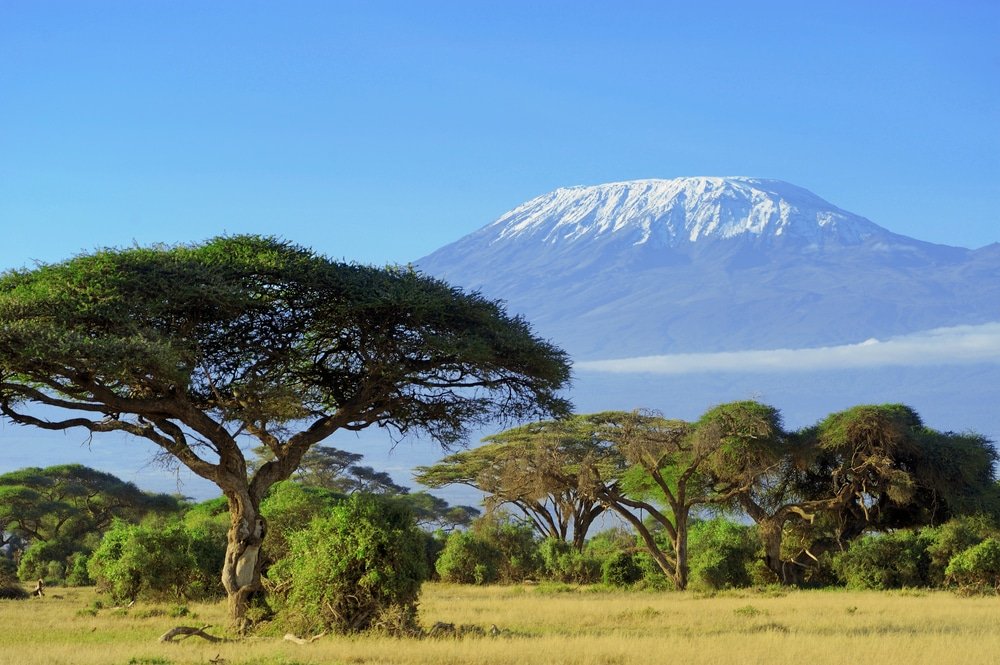The voluntary carbon market is gaining momentum in Africa, with Tanzania revealing that it will receive over $20 billion investment in carbon offset credits from more than 20 companies
Dr. Selemani Jafo, Minister of State in the Vice President’s Office, Union and Environment, emphasized that the adoption of legislation on carbon trading in the African nation last year brought in over $1 billion investment. This money will be used to fund carbon trading activities across Tanzania.
Dr. Jafo further noted that carbon credit trading will help the country’s Nationally Determined Contributions (NDCs). The nation aims to cut GHG emissions by 30% -35 % by 2030. The minister said that:
“We need to establish further cooperation between Tanzania and carbon credit investors and partners for our economy and future generations…We are committed to supporting all investors and stakeholders in carbon trading in our country.”
Investing in Forest Carbon Credits in Tanzania
Carbon credits are market-based financial instruments that represent a reduction in carbon emissions certified by independent international bodies or governments. As businesses and organizations look for viable ways to curb their CO2 emissions, carbon credit markets become their turn-to solution.
The credits are from various projects or initiatives that reduce greenhouse gas emissions. In Tanzania, carbon credits play a crucial role in preserving forests and protecting the way of life of local communities.
The carbon market presents an opportunity for the country to generate funds and address deforestation and forest degradation. The East African nation has 48 million hectares of reserved forests, which offers significant opportunities for carbon trading.
With the $20+ billion investment, the carbon market in Tanzania will experience a revolution. Each credit is equal to one metric ton of CO2, or its equivalent, reduction or removal.
The 20 companies that committed to investing in carbon credit projects in the country are from the U.S., Canada, Switzerland, Russia, Italy, Singapore, Estonia, UAE, and Kenya. Their applications were received by different agencies and institutions in Tanzania. Their investment will protect reserve forests and village forests, as well as game reserves and community-based wildlife management areas.
The country is also working on the biggest carbon credit project in Africa. It’s under the partnership of the Tanzania Wildlife Management Authority and GreenCop Development PTE, a Singapore-based company. Their collaboration seeks to develop carbon projects in Tanzania.
The Increasing Value of Carbon Credits in Africa
Africa has been grabbing the spotlight in the carbon credit market. Last May, the 3rd-largest credit producer in the continent accounting for 13% of Africa’s total revenue, Zimbabwe, required that half of the sales go to the nation’s treasury. Zambia, the 5th biggest producer of carbon credits, also has plans to do the same.
Recently, the former South African president, Jacob Zuma, unveiled that the Belarus African Foreign Trade Association will list the first carbon credits on a newly created exchange in Zimbabwe. He further stated that 2 million credits will begin to trade on the African voluntary carbon market.
Meanwhile, Africa’s largest supplier of carbon credits, Kenya, is in the process of regulating its carbon market. Malawi has also formed a dedicated agency to take on this matter.
Apparently, governments in African developing nations are positioning themselves strategically in the emerging carbon markets. They are developing mechanisms and frameworks to ensure that carbon credit projects in their respective territories are reliable in attracting investors and innovating nature-based solutions to climate change.

